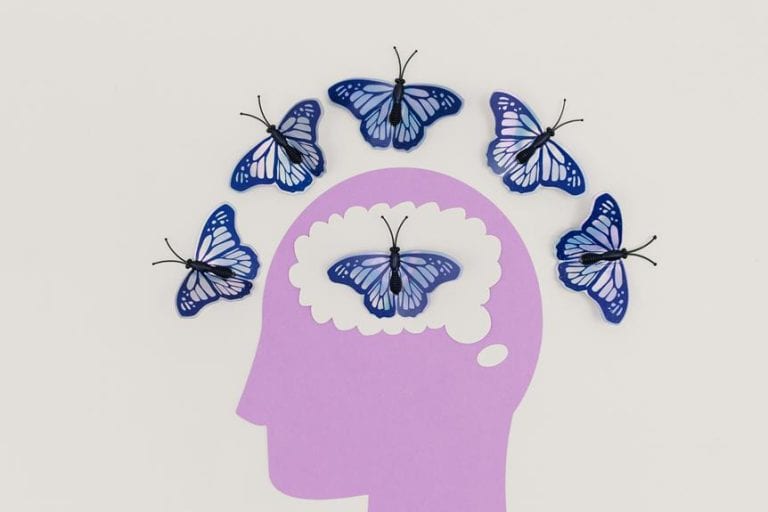Is Adhd an Excuse
Walking through a bustling city street, trying to focus amidst the chaos, I often wonder if ADHD is truly an excuse or a legitimate explanation for the challenges faced by individuals.
It's a question that sparks debate and prompts reflection on how we perceive neurodiversity in our society. The complexities of ADHD go beyond mere excuses, delving into the intricacies of brain function and daily struggles that many fail to comprehend.
Join me in exploring the nuances of this discussion, where understanding and empathy play pivotal roles in shaping our perspectives on ADHD.
Key Takeaways
- ADHD is a valid reason, not an excuse, for behaviors.
- Understanding ADHD as a neurobiological condition is crucial.
- Differentiating reasons from excuses fosters empathy and support.
- Tailoring support systems based on ADHD challenges is essential.
The Debate on ADHD as an Excuse

In the ongoing debate surrounding ADHD as an excuse, misconceptions often overshadow the neurobiological realities of the condition. ADHD, Attention-Deficit/Hyperactivity Disorder, isn't just a vital excuse for behavior but a complex neurobiological condition that affects executive functions in the brain. The challenges individuals with ADHD face, such as difficulties with focus, organization, and impulse control, aren't simply excuses but genuine manifestations of their condition.
It is essential to understand that managing ADHD requires more than just willpower; it necessitates tailored support and strategies to navigate daily tasks effectively. When individuals with ADHD are labeled as making excuses, it undermines the real struggles they encounter due to their neurobiological differences. By recognizing ADHD as a legitimate neurobiological condition rather than brushing it off as an excuse, we can foster a more supportive and empathetic environment.
Empathy and education play key roles in dispelling misconceptions about ADHD and promoting understanding of the challenges individuals with this condition face. By acknowledging the neurobiological underpinnings of ADHD, we can move away from the debate of excuses and towards a more compassionate and informed approach to supporting those with ADHD.
Differentiating Excuses and Reasons in ADHD

When examining ADHD behaviors, it's imperative to differentiate between excuses and reasons.
Understanding the underlying challenges of ADHD can lead to a more supportive and empathetic approach.
Excuses Vs. Reasons
Exploring the domain of ADHD, distinguishing between explanations and justifications is important for fostering understanding and support. Individuals with ADHD often face challenges due to neurobiological differences in executive functioning, leading to legitimate reasons for their behaviors. These reasons aren't excuses but rather explanations for the difficulties they encounter.
Recognizing that ADHD-related struggles are rooted in brain function, acknowledging ADHD as a reason for behavior rather than an excuse becomes vital. By understanding this difference, we can reduce stigma and cultivate empathy towards individuals grappling with ADHD.
Tailoring support systems to address specific cognitive needs effectively hinges on accepting ADHD as a valid reason for the obstacles individuals face daily.
Understanding ADHD Challenges
Understanding ADHD challenges involves recognizing the distinctions between reasons and excuses in behaviors influenced by this condition. Individuals with ADHD often face unique challenges that can be misunderstood. Here are three key points to ponder:
- Complexities of ADHD: The symptoms of ADHD, such as impulsivity and inattention, can lead to behaviors that may seem like excuses but are actually manifestations of the condition.
- Neurobiological Basis: Educating oneself about the neurobiological basis of ADHD can help in understanding that these behaviors aren't mere excuses but rooted in the individual's brain functioning.
- Empathy and Support: Distinguishing between reasons and excuses in ADHD behaviors can foster empathy and support for those managing the challenges associated with ADHD.
Accountability and Support
Exploring the complexities of ADHD challenges requires a nuanced approach to distinguishing between reasons and excuses in behaviors influenced by this condition. Individuals with ADHD often provide reasons, not excuses, for their actions as a way to elucidate the impact of their condition on their behavior.
By differentiating between reasons and excuses, we can cultivate empathy and understanding for individuals grappling with ADHD. Viewing ADHD as a reason rather than an excuse for behaviors can pave the way for a more compassionate and inclusive approach to holding individuals with ADHD accountable.
Offering appropriate support and accommodations is pivotal in enabling individuals with ADHD to take responsibility while maneuvering the challenges posed by their condition. This differentiation not only enhances understanding but also helps establish proactive support systems that cater to the unique needs of those with ADHD.
Impact of ADHD on Daily Functioning

ADHD greatly impacts daily functioning, posing challenges in areas like time management, organization, and task completion. When dealing with ADHD, maintaining focus can be a constant struggle, hindering productivity and leading to feelings of inadequacy. Coping strategies become essential tools for going through the maze of distractions and forgetfulness that characterize each day.
Here are three emotional hurdles individuals with ADHD often face:
- Frustration: The inability to complete tasks or meet deadlines can lead to a deep sense of frustration, exacerbating the already challenging symptoms of ADHD.
- Isolation: Feeling disconnected from others due to difficulties in maintaining attention during conversations or social interactions can contribute to a sense of isolation and loneliness.
- Self-Doubt: Constantly battling forgetfulness and disorganization can erode self-confidence, making it harder to believe in one's abilities and potential.
Addressing these emotional challenges is critical for enhancing overall well-being and quality of life for individuals managing ADHD.
Challenges for Individuals With ADHD

Living with ADHD presents numerous challenges that can impact various aspects of daily life. From struggling with time management and organization to facing difficulties in emotional regulation and sensory sensitivities, individuals with ADHD navigate a unique set of obstacles.
These challenges can greatly affect academic and work performance, underscoring the importance of support systems to help manage the complexities of ADHD.
ADHD and Stigma
Exploring the social landscape with ADHD can be a challenging challenge for many individuals due to the prevalent stigma surrounding the condition. This stigma often leads to misconceptions about ADHD being used as an excuse, creating barriers to empathy and understanding.
Here are three emotional points essential in breaking down stereotypes, reducing stigma, and fostering a more empathetic and inclusive society:
- The judgment and skepticism faced by individuals with ADHD can be isolating and damaging to their self-esteem.
- The fear of being labeled as using ADHD as an excuse can prevent individuals from seeking the support they need, hindering their personal growth.
- Educating others about ADHD is vital in breaking down stereotypes, reducing stigma, and fostering a more empathetic and inclusive society.
Managing Daily Tasks
Managing daily tasks can pose significant challenges for individuals with ADHD, as executive function deficits often result in difficulties with planning, organizing, and prioritizing activities. Time management becomes a major hurdle, leading to procrastination, forgetfulness, and feeling overwhelmed by tasks.
The struggle with task completion and maintaining routines can result in inconsistent performance, missed deadlines, and a sense of disorganization. Additionally, the difficulty in sustaining focus and attention further complicates staying on track with responsibilities.
To address these challenges, implementing effective strategies such as using visual schedules, setting reminders, and breaking tasks into smaller steps can greatly aid individuals with ADHD in managing daily tasks and enhancing overall productivity.
Strategies for Managing ADHD Effectively

How can individuals with ADHD effectively navigate their daily challenges and enhance their overall well-being? It can be overwhelming to manage the symptoms of ADHD, but implementing certain strategies can make a significant difference in one's daily life.
- Embrace Structured Routines: Establishing consistent routines can provide a sense of stability and predictability, helping to reduce impulsivity and improve time management skills.
- Break Tasks into Manageable Steps: Dividing tasks into smaller, more manageable steps can make them feel less challenging and increase the likelihood of completion, boosting confidence and motivation along the way.
- Combat Excuse-Making Tendencies: Recognize when excuse-making tendencies arise and work on reframing thoughts and actions. By acknowledging challenges and taking responsibility, personal growth can flourish, leading to a more empowered and proactive approach to managing ADHD.
Society's Role in Supporting ADHD Individuals

Society actively contributes to the well-being of individuals with ADHD by fostering understanding and acceptance of their unique challenges. Individuals with ADHD often face shame and judgment due to misconceptions and myths surrounding their condition. By dispelling these myths, society can cultivate empathy and provide the necessary support for those affected.
Clear communication and minimizing distractions are simple yet effective ways in which society can assist individuals with ADHD in their daily lives. Empowering individuals with ADHD to thrive requires creating inclusive environments that cater to their specific needs. Offering additional resources and coaching services can greatly aid individuals in managing their symptoms and achieving their full potential.
Frequently Asked Questions
Can You Use ADHD as an Excuse in Court?
In court, ADHD can be a factor considered for culpability and sentencing. It influences work ethic, time management, accountability, and personal responsibility. While not an excuse, it may affect intent and response, leading to accommodations.
Is ADHD an Excuse in Relationships?
In relationships, ADHD can present communication challenges, time management difficulties, emotional regulation issues, and trust concerns. Acknowledging these struggles and seeking support can foster understanding and strengthen connections, promoting healthier and more empathetic interactions.
Is ADHD an Excuse to Be Late?
Struggling with time management due to ADHD can lead to punctuality struggles. Seeking workplace accommodations and strategies is essential. While ADHD can contribute to lateness, acknowledging accountability issues and actively managing time can help improve punctuality.
Is ADHD an Excuse for Being Messy?
Maintaining cleanliness with ADHD can be challenging due to executive function struggles. Implementing productivity strategies, organization tips, and time management skills can help. Behavioral therapy is beneficial in developing better organizational habits.
Conclusion
To sum up, ADHD isn't an excuse but a valid reason for the challenges individuals face. According to the CDC, approximately 6.1 million children in the United States have been diagnosed with ADHD.
Understanding and supporting those with ADHD is essential for their success. By providing accommodations and empathy, we can help them manage their symptoms effectively and thrive in their daily lives.
Let's shift the narrative from excuses to reasons and promote a more inclusive society.







